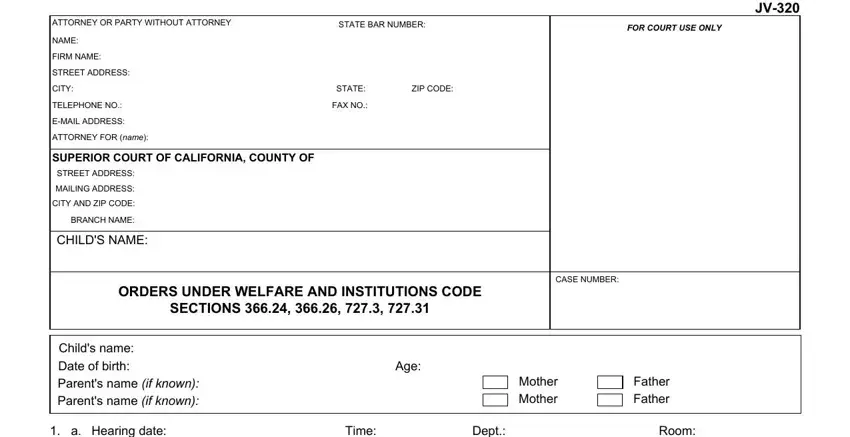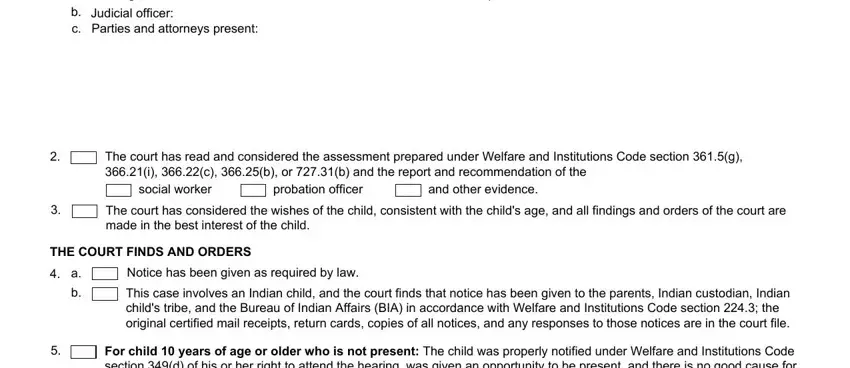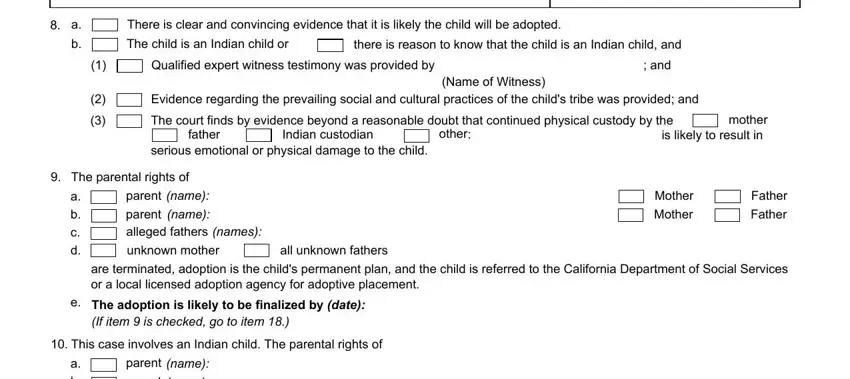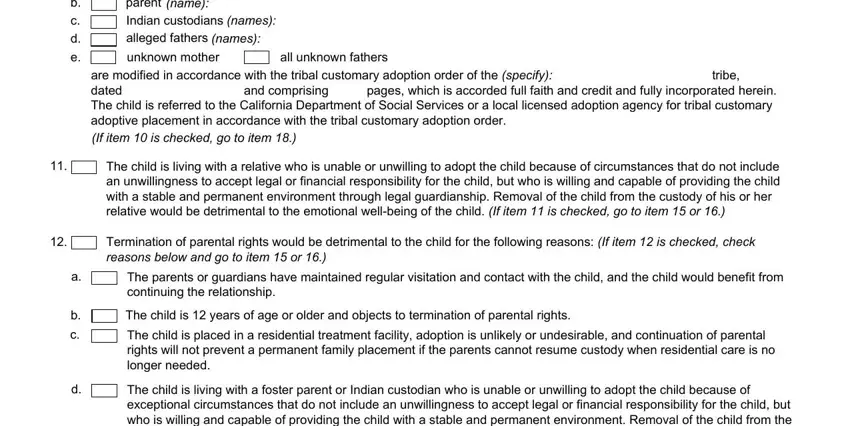You can fill in ca jv 320 effortlessly with the help of our online tool for PDF editing. To make our tool better and simpler to work with, we consistently work on new features, taking into account suggestions coming from our users. To begin your journey, consider these simple steps:
Step 1: Just click on the "Get Form Button" above on this site to open our pdf file editor. This way, you'll find all that is required to fill out your document.
Step 2: As soon as you access the online editor, you will get the form all set to be completed. Aside from filling in various blank fields, you may also perform other things with the form, particularly adding custom textual content, editing the original text, adding images, affixing your signature to the PDF, and much more.
As for the blanks of this precise form, this is what you want to do:
1. Begin completing your ca jv 320 with a selection of necessary fields. Collect all of the information you need and ensure there's nothing neglected!

2. Your next step would be to fill in these particular fields: Hearing date, a b Judicial officer c, Parties and attorneys present, Time, Dept, Room, The court has read and considered, social worker, probation officer, and other evidence, The court has considered the, THE COURT FINDS AND ORDERS, Notice has been given as required, This case involves an Indian child, and For child years of age or older.

Be very mindful while filling out Room and THE COURT FINDS AND ORDERS, because this is the part where many people make a few mistakes.
3. Completing For child years of age or older, The court takes judicial notice of, The court previously made a, parent, name, parent, name, Form Adopted for Mandatory Use, ORDERS UNDER WELFARE AND, SECTIONS, Mother, Mother, Father, Father, and Page of is essential for the next step, make sure to fill them out in their entirety. Don't miss any details!

4. Completing There is clear and convincing, The child is an Indian child or, there is reason to know that the, Qualified expert witness testimony, Evidence regarding the prevailing, Name of Witness, mother The court finds by evidence, Indian custodian, father, other, The parental rights of, parent, name, parent, and name alleged fathers is crucial in this next step - make sure to spend some time and take a close look at every single field!

5. This document should be wrapped up by going through this segment. Further there's a comprehensive listing of blank fields that require specific information to allow your form submission to be complete: parent, name, Indian custodians, names, alleged fathers, names, unknown mother, all unknown fathers, are modified in accordance with, The child is living with a, Termination of parental rights, The parents or guardians have, The child is years of age or, The child is placed in a, and The child is living with a foster.

Step 3: Prior to finishing the form, double-check that all blank fields have been filled out right. When you verify that it's fine, press “Done." After starting afree trial account here, it will be possible to download ca jv 320 or send it through email directly. The file will also be accessible through your personal account with all your edits. Whenever you work with FormsPal, you can certainly fill out forms without having to worry about information breaches or data entries being shared. Our protected system ensures that your private information is kept safe.






